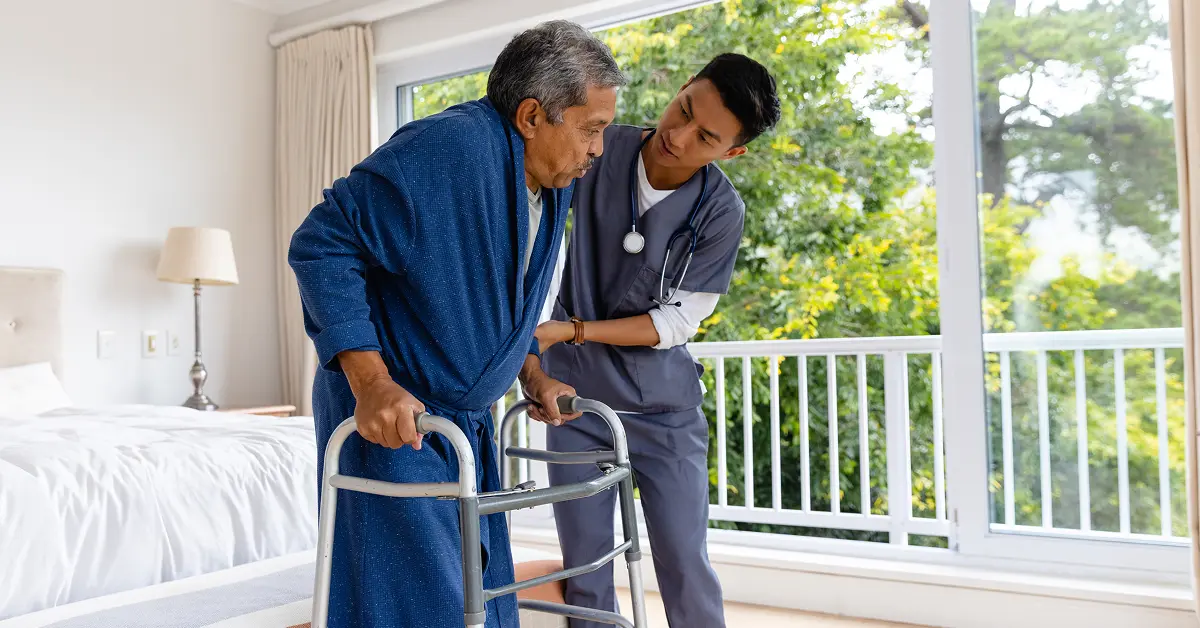Recovering from an illness, injury, or surgery is never just about medical treatment—it’s about the environment, emotional well-being, and the kind of support a patient receives. In India, the demand for professional at-home Patient Care has grown significantly in recent years, driven by both convenience and proven health benefits.
Whether it’s post-operative recovery, elderly care, or chronic illness management, patients who receive care at home often heal faster, feel more motivated, and experience fewer complications. Here’s why home-based care can be a game-changer for recovery.
Comfort of a Familiar Environment
One of the biggest advantages of at-home patient care is the comfort factor. Being surrounded by familiar sights, sounds, and loved ones reduces anxiety and promotes emotional stability.
A hospital stay can be stressful—constant noise, bright lights, and the feeling of being in an unfamiliar place can slow down recovery. At home, patients can rest in their own bed, eat home-cooked meals (as per doctor’s advice), and enjoy the warmth of family support. This psychological comfort often translates into physical healing.
Reduced Risk of Hospital-Acquired Infections
Hospitals, while essential for acute care, are also environments where infections can spread easily, especially to patients with weakened immunity. Infections like pneumonia, urinary tract infections, and MRSA are more common in hospital settings.
At home, the risk of such infections is significantly lower. Professional caregivers and nurses maintain strict hygiene standards, but the exposure to other sick patients is minimal. This alone can prevent complications and shorten recovery time.
Personalised and One-on-One Attention
In hospitals, nurses and doctors must divide their time among multiple patients. At home, the ratio is completely different—one caregiver or nurse focuses entirely on a single patient.
- Prompt response to any changes in health condition
- Customised care plans suited to the patient’s needs
- Constant monitoring of vitals, medication schedules, and dietary requirements
Such dedicated attention ensures that problems are identified early and addressed before they become serious.
Emotional Support from Family
Recovery is not just a physical process; emotional health plays a huge role. At home, patients are surrounded by family members who can provide constant encouragement, conversation, and motivation.
For elderly patients, especially, the presence of familiar faces can reduce feelings of loneliness and depression, which are known to slow recovery. Children recovering from illness or surgery also respond better emotionally when cared for at home.
Flexibility in Care Plans
Hospital care follows strict schedules for food, medication, and therapy, which may not always align with a patient’s comfort. At home, care plans can be tailored to individual preferences without compromising medical advice.
- Physiotherapy sessions can be scheduled at the most energetic time of day for the patient.
- Meals can be prepared according to cultural, religious, and personal tastes.
- Rest periods can be adjusted based on the patient’s sleep pattern.
This flexibility not only improves comfort but also boosts cooperation with treatment.
Cost-Effective Recovery
Hospital stays in India, especially in private facilities, can be expensive. Daily charges for a bed, doctor visits, and hospital food can quickly add up.
At-home patient care often costs less while still providing professional medical attention. Even with the expenses for a trained nurse, physiotherapist, or caregiver, overall costs can be significantly lower—especially for long-term care needs.
Encourages Faster Mobility and Independence
Hospitals can sometimes make patients overly dependent on medical staff for even basic tasks. At home, caregivers often encourage patients to do small activities themselves—such as moving around, eating without assistance, or doing light exercises—under supervision.
This early push towards independence can improve muscle strength, boost confidence, and speed up recovery.
Availability of Medical Equipment at Home
Modern healthcare services in India can now provide hospital-grade medical equipment for home use, including:
- Hospital beds
- Oxygen concentrators
- Nebulisers
- Vital sign monitors
- IV stands and infusion pumps
This ensures that patients receive the same level of medical support as in a hospital, without having to stay in one.
Continuous Communication with Doctors
Many at-home patient care services maintain direct communication with the patient’s doctor. Caregivers regularly update doctors about progress, and telemedicine consultations are becoming increasingly common.
This integration ensures medical oversight without the need for frequent hospital visits, saving both time and energy for the patient.
Ideal for Chronic and Long-Term Conditions
Patients with chronic conditions such as diabetes, heart disease, or neurological disorders often require ongoing care. For them, being at home reduces the stress of constant hospital visits.
With regular monitoring, medication management, and lifestyle guidance from trained caregivers, patients can maintain a stable condition and avoid unnecessary hospitalisation.
Tips for Choosing the Right At-Home Patient Care Service in India
- Check Credentials – Ensure the agency provides certified nurses, physiotherapists, or trained caregivers.
- Verify Experience – Ask about their experience in handling cases similar to yours.
- Discuss Care Plans – A good provider will customise a plan after understanding the patient’s medical history.
- Look for 24/7 Support – Emergencies can happen at any time; make sure backup help is available.
- Ask for References – Feedback from other families can be a reliable guide.
The Bottom Line
At-home patient care combines the comfort of home with the professionalism of trained medical staff, offering the best of both worlds. In India, where family bonds are strong and home is the heart of emotional support, this approach can speed up recovery while keeping costs manageable.
By reducing the risk of infections, providing personalised care, and creating a healing environment, at-home care is not just a convenience—it’s a proven way to recover faster and healthier.
If you or a loved one are on the road to recovery, consider exploring professional at-home care services. Sometimes, the best medicine is not just the treatment itself, but the place where you receive it.
Contents
- Comfort of a Familiar Environment
- Reduced Risk of Hospital-Acquired Infections
- Personalised and One-on-One Attention
- Emotional Support from Family
- Flexibility in Care Plans
- Cost-Effective Recovery
- Encourages Faster Mobility and Independence
- Availability of Medical Equipment at Home
- Continuous Communication with Doctors
- Ideal for Chronic and Long-Term Conditions
- Tips for Choosing the Right At-Home Patient Care Service in India
- The Bottom Line
Our 24*7 services
Latest Posts
- What Is Respite Care and Why Is It Important
- Affordable home care for senior citizens in India
- Caring for Seniors with Dementia or Alzheimer's at Home
- Senior Caregiving A Guide for Every Family
- How to Write a Caregiver Resume That Gets You Hired
- How Care After Hospital Discharge Speeds Up Recovery at Home
- How to Get Home Health Care for Seniors Through Medicare
- What Does a Senior Citizen Caregiver Really Do at Home
- How to Care for Elderly Parents with Alzheimer’s or Dementia
- How to Get 24-Hour Care for Seniors at Home



